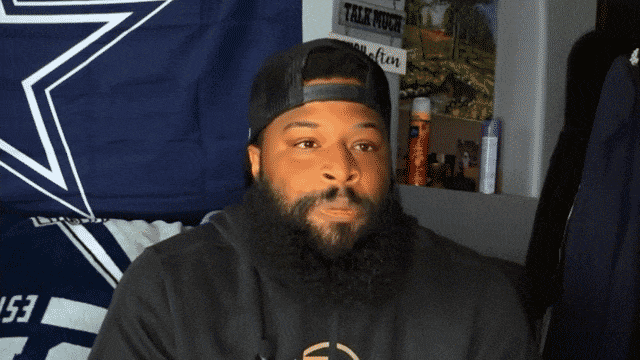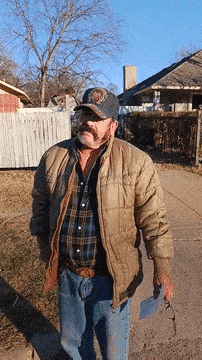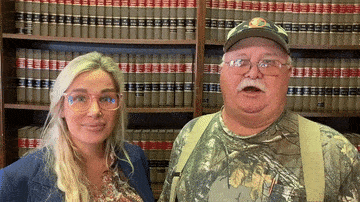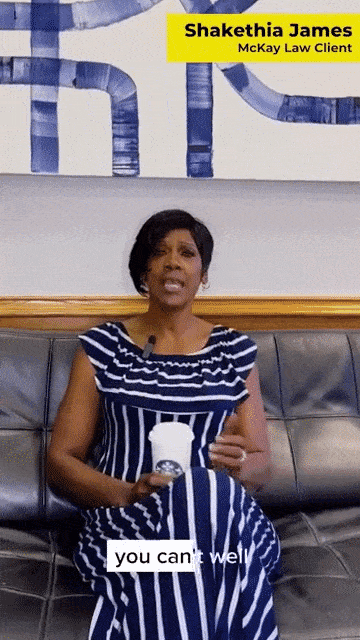“Texas Tough” McKay Law
Texas Slip-and-Fall Accident Lawyer
A simple misstep on someone else’s property can instantly change your life, leading to serious injuries, mounting medical bills, and unexpected time away from work. When a property owner’s negligence causes your slip-and-fall accident, you shouldn’t have to carry the burden alone. At McKay Law, our dedicated team of Texas slip-and-fall accident lawyers is committed to helping victims navigate the complex legal system with expertise and compassion. We fight to secure the compensation you deserve, allowing you to focus on your recovery and regain your confidence. Our firm stands for justice, and we are here to ensure your voice is heard and your rights are protected every step of the way.
NO FEES UNLESS WE WIN!
We only get paid when you get paid.
Receive Immediate Medical Care
Get the medical attention you need with no out-of-pocket cost in most cases.
24/7 Access To Us
We are here for you 24/7 so you can focus on healing.
Client Satisfaction
McKay Law has a reputation to be proud of with 300+ 5 star Google Reviews.
Texas Slip-and-Fall Accident Attorney | McKay Law
When a simple outing turns into a painful ordeal due to a slip-and-fall accident, the path to recovery can seem daunting. In Texas, these incidents fall under premises liability law, which requires victims to prove that a property owner’s negligence directly caused their injuries. This can be a complex legal challenge, involving detailed investigations and a deep understanding of state statutes. McKay Law specializes in navigating these intricate cases, providing expert legal guidance to individuals who have been injured on someone else’s property. Their focused expertise ensures that every aspect of the case, from gathering evidence to establishing liability, is handled with precision and skill.
At McKay Law, the commitment to client advocacy is the cornerstone of their practice. They understand that a slip-and-fall accident is more than just a legal case; it’s a disruptive event that impacts a person’s health, finances, and overall well-being. The firm prioritizes clear communication and personalized attention, ensuring clients feel supported and informed throughout the legal process. By taking on the burden of negotiating with insurance companies and managing legal procedures, McKay Law allows victims to focus on what truly matters: their physical and emotional recovery. This client-first approach builds a foundation of trust and demonstrates a genuine dedication to securing justice for the injured.
The ultimate measure of a personal injury firm is its ability to deliver results, and McKay Law has a proven track record of success in securing meaningful compensation for slip-and-fall victims. Their history of favorable settlements and verdicts speaks to their capability in holding negligent property owners accountable. This compensation is crucial for covering medical bills, lost wages, and other damages incurred as a result of the accident. For those facing the aftermath of a slip-and-fall in Texas, partnering with McKay Law means enlisting a powerful advocate dedicated to achieving the best possible outcome for your case.
Understanding Slip-and-Fall Accidents in Texas
Slip-and-fall accidents are a common type of personal injury case in Texas, often involving premises liability law. Here’s an overview to help you understand the key aspects of these accidents in Texas:
1. What is a Slip-and-Fall Accident?
A slip-and-fall accident occurs when someone slips, trips, or falls due to a hazardous condition on someone else’s property. These accidents can happen in various places, such as grocery stores, restaurants, parking lots, or private homes.
2. Premises Liability in Texas
In Texas, property owners and occupiers have a legal duty to maintain their premises in a reasonably safe condition. If they fail to address or warn about dangerous conditions, they may be held liable for injuries resulting from a slip-and-fall accident.
3. Common Causes of Slip-and-Fall Accidents
- Wet or slippery floors
- Uneven surfaces or broken tiles
- Poor lighting
- Cluttered walkways
- Lack of warning signs for hazards
- Weather-related hazards like ice or rainwater
4. Proving Liability in Texas
To hold a property owner liable for a slip-and-fall accident, the injured party must prove:
- The property owner knew or should have known about the dangerous condition.
- The property owner failed to address or warn about the hazard.
- The hazardous condition directly caused the injury.
5. Comparative Negligence in Texas
Texas follows a “modified comparative negligence” rule. This means that if the injured party is found partially at fault for the accident, their compensation may be reduced by their percentage of fault. If they are more than 50% at fault, they cannot recover damages.
6. Statute of Limitations
In Texas, the statute of limitations for filing a personal injury lawsuit, including slip-and-fall cases, is two years from the date of the accident. Acting promptly is crucial to preserve your legal rights.
7. Steps to Take After a Slip-and-Fall Accident
- Seek medical attention immediately.
- Report the incident to the property owner or manager.
- Document the scene with photos and gather witness information.
- Keep records of medical bills and other expenses.
- Consult a personal injury attorney to evaluate your case.
8. Why Legal Representation Matters
Slip-and-fall cases can be complex, requiring evidence like surveillance footage, maintenance records, and expert testimony. An experienced personal injury attorney can help navigate the legal process, negotiate with insurance companies, and advocate for fair compensation.
Understanding these aspects can help you better navigate the aftermath of a slip-and-fall accident in Texas. If you have specific questions or need legal advice, consulting a qualified attorney is highly recommended.
Lindsey McKay Takes Texas Slip-and-Fall Accident Cases Seriously
A simple misstep on a wet floor or an unexpected trip over an obstacle can change your life in an instant. A slip-and-fall accident might sound minor, but the consequences can be severe, leading to significant injuries, medical bills, and lost wages. When property owners fail to maintain safe conditions, they must be held accountable. Lindsey McKay understands the serious nature of these incidents and is dedicated to representing victims of slip-and-fall accidents across Texas with unwavering commitment.
This post will explore why Lindsey McKay is a trusted advocate for those injured in these accidents. We will cover her dedicated approach, from detailed investigations to fighting for fair compensation, showing why she takes every Texas slip-and-fall case seriously.
Lindsey McKay’s Comprehensive Approach to Your Case
Lindsey McKay approaches every slip-and-fall case with the thoroughness and dedication it deserves. Her process is designed to uncover the facts, establish liability, and secure the justice her clients need to recover.
1. Conducting a Thorough Investigation
The moments after an accident are critical. Evidence can disappear quickly, and witness memories can fade. Lindsey McKay and her team act swiftly to preserve crucial information. This includes:
- Securing Surveillance Footage: Many businesses have security cameras that may have captured the incident. This footage can provide indisputable proof of the dangerous condition and the events leading to the fall.
- Interviewing Witnesses: Speaking with employees or other patrons who saw the accident can provide valuable testimony to support your claim.
- Documenting the Scene: Photographs of the hazard, the surrounding area, and your injuries are vital pieces of evidence. Lindsey ensures every detail is captured.
2. Collaborating with Experts
Building a compelling case often requires expert analysis. Lindsey McKay works with a network of respected professionals to strengthen your claim. Depending on the specifics of your accident, this might involve:
- Medical Experts: Doctors and specialists can provide detailed reports on the extent of your injuries, the necessary treatments, and the long-term impact on your health and ability to work.
- Engineering and Safety Experts: These professionals can assess the accident scene to determine if the property failed to meet safety codes or standards, providing expert opinions on the hazardous conditions.
- Economic Experts: In cases involving long-term disability or lost earning capacity, economists can calculate the full financial impact of your injuries over your lifetime.
3. Calculating the Full Scope of Your Damages
A slip-and-fall injury is more than just the initial medical bill. The financial and personal toll can be extensive. Lindsey McKay is committed to identifying and fighting for compensation for all of your losses, including:
- Current and future medical expenses
- Lost wages and diminished earning capacity
- Pain and suffering
- Physical therapy and rehabilitation costs
- Emotional distress
She ensures that any settlement offer fully addresses the true cost of your accident, not just the immediate expenses.
4. Negotiating with Insurance Companies
Insurance companies are businesses focused on protecting their bottom line. Their goal is often to settle claims for the lowest possible amount. They may use tactics to downplay your injuries or pressure you into accepting an unfair offer.
Lindsey McKay has extensive experience dealing with insurance adjusters. She handles all communications on your behalf, protecting you from their tactics and presenting a powerful, evidence-backed argument for fair compensation. She is a skilled negotiator who is not afraid to push back against lowball offers. If a fair settlement cannot be reached, she is fully prepared to take your case to court to fight for your rights.
What Makes Slip-and-Fall Cases So Complex?
Many people underestimate the difficulty of winning a slip-and-fall case. In Texas, the law requires the injured person (the plaintiff) to prove that the property owner knew or should have known about a dangerous condition and failed to address it. This is known as “premises liability.”
Proving negligence can be challenging. Property owners and their insurance companies often argue that the victim was careless or that the hazard was “open and obvious.” They may try to shift blame to avoid paying for damages. Successfully navigating these complexities requires a knowledgeable attorney who can build a strong, evidence-based case on your behalf.
A Compassionate Advocate for the Injured
Beyond her legal expertise, Lindsey McKay is known for her compassion and genuine care for her clients. She understands that you are going through a difficult and stressful time. You are not just another case number. She takes the time to listen to your story, understand your concerns, and keep you informed throughout the entire legal process. Her commitment is to provide personalized attention and support, allowing you to focus on your recovery while she handles the legal burdens.
Injured in a Slip-and-Fall? Take Action Today
If you or a loved one has been injured in a slip-and-fall accident in Texas, you don’t have to face the aftermath alone. Proving negligence and securing the compensation you deserve requires skill, experience, and dedication. Lindsey McKay is ready to provide the serious legal representation your case demands.
Contact Lindsey McKay today for a free, no-obligation consultation to discuss your case. Let her put her expertise to work for you and help you on the path to justice and recovery.
What Are The Most Common Types of Slip-and-Fall Injuries In Texas?
The most common types of slip-and-fall injuries in Texas include:
Sprains and Strains: These injuries occur when muscles or ligaments are overstretched or torn. They are often the result of a person bracing themselves during a fall. Commonly affected areas include the knees, ankles, wrists, shoulders, and back. Treatment typically involves stabilizing the injured area with a brace or bandage to prevent further damage, along with rest and physical therapy.
Bruises and Contusions: These soft tissue injuries happen when blood vessels under the skin break due to the impact of a fall. While they may appear as discoloration and cause pain, they are usually not severe. Over-the-counter pain relievers and cold compresses are often sufficient for treatment, though individuals with bleeding disorders should consult a doctor.
Fractures (Broken Bones): Falls can lead to broken bones, especially in the arms, legs, hips, and back. Symptoms include severe pain, swelling, and an inability to move the affected area. Immediate medical attention is crucial to prevent complications like nerve damage or impaired blood flow. Treatment may involve casting, surgery, or physical rehabilitation.
Abrasions and Lacerations: These injuries range from scrapes (abrasions) to deep cuts (lacerations) caused by landing on rough or sharp surfaces. While minor abrasions can be treated with antiseptics and bandages, deeper lacerations may require stitches or staples. Infection is a significant risk, so proper wound care is essential.
Head Injuries and Traumatic Brain Injuries (TBIs): Head injuries are among the most serious outcomes of slip-and-fall accidents. They can range from mild concussions to severe brain trauma. Symptoms may include dizziness, confusion, headaches, nausea, and even loss of consciousness. Immediate medical evaluation is critical, as some symptoms may not appear right away but can have long-term effects on cognitive and physical health.
These injuries highlight the importance of addressing hazardous conditions promptly to prevent accidents and ensuring proper medical care when injuries occur.
What Damages Can I Receive from a Texas Slip-and-Fall Accident Claim?
A sudden slip-and-fall accident can completely disrupt your life. One moment, you’re walking through a store, parking lot, or on a sidewalk, and the next, you’re facing unexpected injuries, endless medical appointments, and time away from work—leaving you not only in pain but also overwhelmed with growing expenses. These accidents can result from a variety of hazards, such as wet floors, uneven pavement, poor lighting, or misplaced objects.
In Texas, property owners have a legal duty to maintain their premises in a reasonably safe condition. When they fail in this responsibility and someone is injured as a result, the law allows victims to pursue compensation for their damages. This compensation can cover medical expenses, lost wages, pain and suffering, and even future costs related to long-term injuries. However, understanding the specific types of damages you can claim is crucial to ensuring your financial stability during recovery.
This guide will walk you through the different categories of compensation available in a Texas slip-and-fall accident claim. From economic damages like medical bills and lost income to non-economic damages like emotional distress, we’ll help you understand what you may be entitled to recover and how to take the first steps toward protecting your future after an accident.
1. Economic Damages: Your Tangible Financial Losses
Economic damages are the most straightforward type of compensation because they represent actual, calculable financial losses. These are the bills, receipts, and pay stubs that show the direct monetary cost of your accident.
Medical Expenses
This is often the largest component of an economic damages claim. It covers all past and future medical care related to the injuries you sustained in the fall.
- Examples include:
- Emergency room visits and ambulance fees
- Hospital stays and surgical procedures
- Appointments with doctors and specialists
- Physical therapy and rehabilitation
- Prescription medications
- Medical devices like crutches or wheelchairs
- In-home nursing care
It is crucial to include costs for future medical needs. For instance, if your doctor determines you will need ongoing physical therapy or another surgery down the road, the estimated cost of that future care can be included in your claim.
Lost Wages and Loss of Earning Capacity
If your injury prevents you from working, you are entitled to compensation for the income you have lost. This is calculated based on your pay stubs or other proof of income.
But what if your injury is so severe that it permanently affects your ability to earn a living? This is where “loss of earning capacity” comes in. This type of damage compensates you for the money you would have earned in the future if not for the accident.
For example, a construction worker who suffers a severe back injury in a fall may no longer be able to perform manual labor. They would be entitled to damages for the difference between their previous earning potential and what they can now earn in a different, lower-paying job.
Other Out-of-Pocket Expenses
You can also claim compensation for other costs directly resulting from your injury, such as:
- Transportation costs to and from medical appointments.
- Modifications to your home or vehicle to accommodate a disability.
- Costs for household services you can no longer perform, like cleaning or lawn care.
Be sure to keep detailed records and receipts for all expenses related to your accident.
2. Non-Economic Damages: The Intangible Costs of Your Injury
Non-economic damages are more subjective because they compensate you for non-financial losses. These damages address the real, but hard-to-quantify, human suffering that results from a serious injury.
Pain and Suffering
This category covers the physical pain and emotional distress you have experienced because of the accident. The severity of your injury, the intensity of the pain, and the length of your recovery all factor into this calculation. For example, someone who endures multiple painful surgeries and a long, difficult rehabilitation will likely receive more for pain and suffering than someone with a minor fracture that heals quickly.
Mental Anguish
A serious accident can cause significant psychological harm. Mental anguish damages compensate for conditions like:
- Anxiety
- Depression
- Insomnia or sleep disorders
- Post-traumatic stress disorder (PTSD)
- Loss of enjoyment of life
If you can no longer participate in hobbies or activities that once brought you joy, that loss is considered as part of your damages.
Physical Impairment or Disfigurement
If your injury results in a permanent physical limitation or visible scarring, you can claim damages for physical impairment or disfigurement. This compensates for the daily challenges of living with a disability or the emotional impact of a permanent scar. For instance, a person who loses mobility in their hand or suffers facial scarring from a fall would be entitled to compensation for that specific loss.
3. Punitive Damages: Punishing Gross Negligence
In some rare cases, you may be able to claim punitive damages (also known as exemplary damages in Texas). Unlike economic and non-economic damages, which are meant to compensate the victim, punitive damages are designed to punish the defendant for extremely reckless behavior and deter others from acting similarly.
To receive punitive damages in a Texas slip-and-fall case, you must prove with clear and convincing evidence that the property owner acted with “gross negligence,” “fraud,” or “malice.” Gross negligence involves an act or omission that demonstrates a conscious indifference to the rights, safety, or welfare of others.
For example, if a store owner knew about a dangerous, recurring spill and did nothing to fix it for weeks, leading to multiple injuries, a court might find their inaction to be grossly negligent and award punitive damages. These damages are capped in Texas and are not awarded in most slip-and-fall cases.
Why You Need an Experienced Personal Injury Attorney
Navigating a slip-and-fall claim can be complex. Property owners and their insurance companies often try to minimize their liability by arguing that you were at fault or that your injuries are not as severe as you claim.
An experienced personal injury attorney can be your greatest asset. A lawyer will help you:
- Investigate the accident: Gathering evidence like security footage, witness statements, and accident reports.
- Calculate your total damages: Working with medical and financial experts to determine the full value of your past and future losses.
- Negotiate with insurance companies: Fighting for a fair settlement that covers all of your damages.
- Represent you in court: If a fair settlement cannot be reached, your attorney will be prepared to take your case to trial.
Victims who have legal representation consistently secure higher settlements than those who do not. An attorney ensures you do not overlook any potential damages and levels the playing field against powerful insurance companies. If you have been injured in a slip-and-fall accident in Texas, consulting with a lawyer is a critical step toward protecting your rights and securing the compensation you deserve.
Protect Your Rights After a Slip-and-Fall
Slip-and-fall accidents can lead to a wide range of losses, from mounting medical bills and lost wages to emotional distress and lasting physical impacts. Texas law gives victims the right to pursue compensation for these damages, holding negligent property owners accountable. Understanding your rights and the types of damages available is crucial, but the process can be complex.
If you or a loved one has suffered a slip-and-fall injury, taking prompt action is key. Reach out to an experienced personal injury attorney who can guide you through your claim, advocate on your behalf, and help secure the compensation you need to move forward. Don’t let uncertainty or insurance company tactics stand in your way—get the support you deserve and start your recovery today.
The Texas Tough Difference
See why so many others choose McKay Law, PLLC
With over 300 five-star reviews, McKay Law, your local Personal Injury Law Firm has earned the trust and gratitude of our clients. Every case we handle is unique, and every client’s story matters. Don’t just take our word for it—hear directly from our clients about their experiences and why they confidently recommend us to others.
Slip-and-Fall Accident FAQs
A slip-and-fall accident is a type of premises liability claim. It happens when a person is injured by slipping, tripping, or falling due to a hazardous condition on someone else's property. These conditions can include wet floors, uneven surfaces, poor lighting, or cluttered walkways.
Liability typically falls on the property owner or the party responsible for maintaining the property (like a tenant or management company). To establish liability, you generally need to prove that they were negligent. This means showing they knew or should have known about the dangerous condition and failed to take reasonable steps to fix it or warn others.
Your health is the first priority, so seek medical attention right away, even if you feel fine. Next, if possible, report the incident to the property owner or manager and ensure an official accident report is filed. Take photos of the scene, including the specific hazard that caused your fall, and get contact information from any witnesses.
Proving negligence involves showing one of the following:
- The property owner or their employee caused the dangerous condition (e.g., spilled a liquid and didn't clean it up).
- The owner knew about the hazard but did nothing to correct it.
- The owner should have reasonably known about the hazard through regular maintenance and inspection.
Evidence like photos, witness statements, and maintenance records can help support your claim.
If your claim is successful, you may be able to recover damages for various losses. This can include medical expenses (past and future), lost wages from time off work, reduced earning capacity, and compensation for pain and suffering.
Yes, every state has a time limit, known as the statute of limitations, for filing a personal injury lawsuit. This period varies by state but is often two or three years from the date of the accident. It is crucial to act promptly, as you will lose your right to sue if you miss the deadline.
Even if you were partially at fault, you might still be able to recover compensation. Many states follow a "comparative negligence" rule. This means your compensation will be reduced by your percentage of fault. For example, if you are found to be 20% at fault, your total award would be reduced by 20%.
While you can file a claim on your own, slip-and-fall cases can be complex. An experienced personal injury attorney can help gather evidence, negotiate with insurance companies, and ensure you meet all legal deadlines. They can handle the legal process so you can focus on your recovery.
Filing a claim against a government entity (like a city or state) involves different rules and much shorter deadlines. There are often specific notice requirements you must follow before you can file a lawsuit. Due to these complexities, consulting with an attorney is highly recommended if you were injured on public property.
Strong evidence is key to a successful claim. Important items include:
- Photos and videos of the accident scene and your injuries.
- Contact information for any witnesses.
- The official accident report filed with the property manager.
- All medical records and bills related to your treatment.
- The shoes and clothing you were wearing at the time of the fall.






